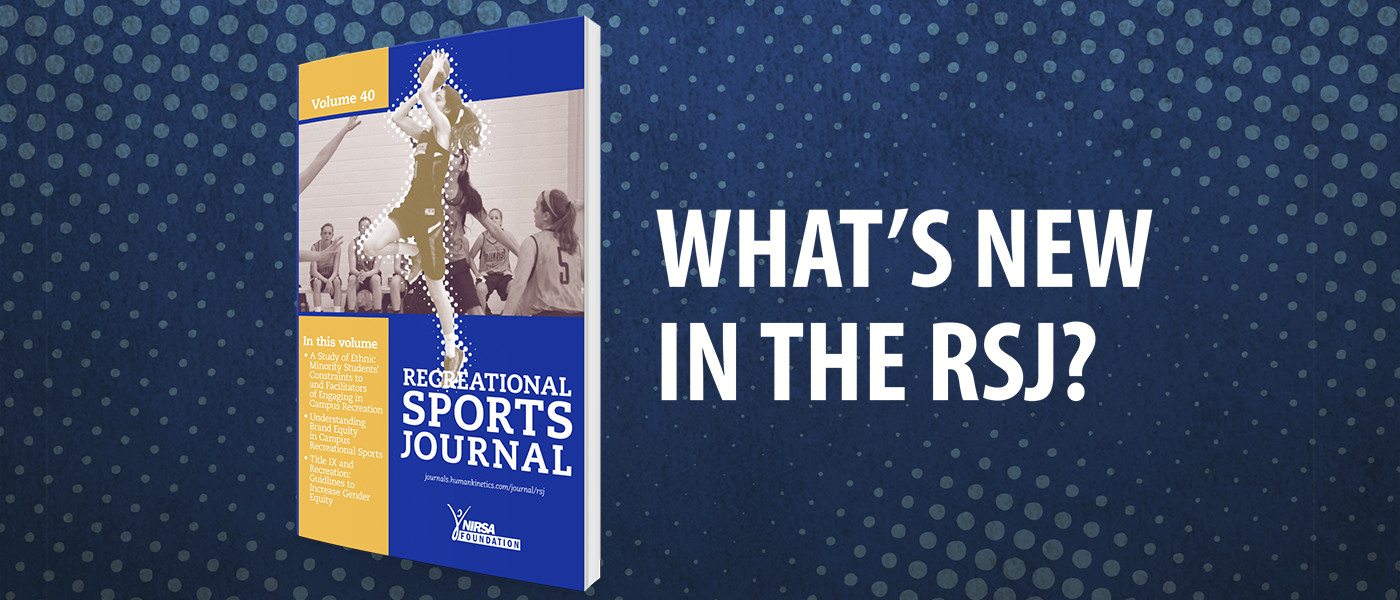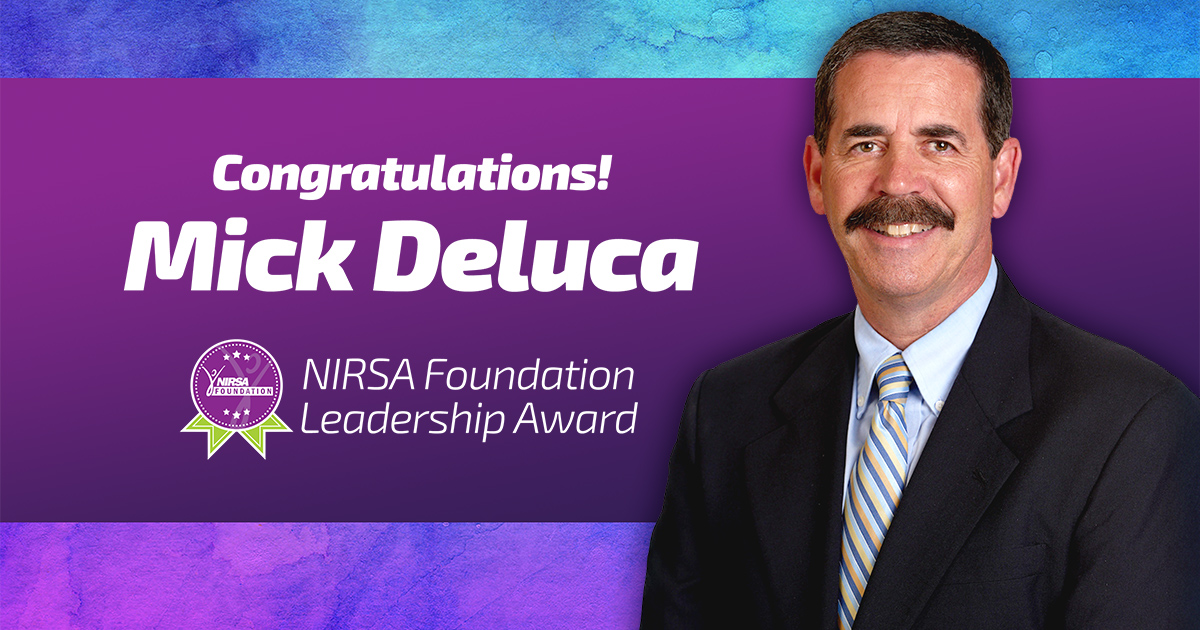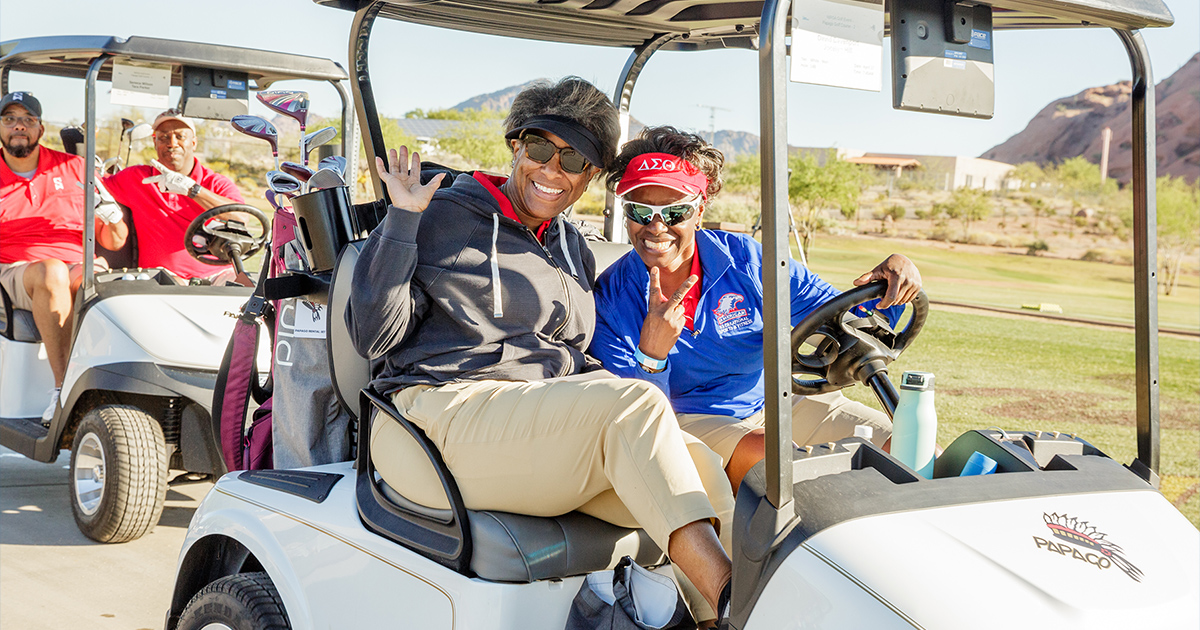NIRSA celebrates equity, diversity, and inclusion as one of our Strategic Values; we believe EDI is crucial to creating healthy people and healthy communities. The Association’s commitment to inclusive recreation dates back to our founding by members of eleven Historically Black Colleges and Universities. In the ensuing decades, we have aspired to promote healthy, inclusive communities for all individuals. This aspiration has been exemplified by our members.
In 2015, the Recreational Sports Journal published an article on the current policies and practices regarding transgender student participation in recreation at NIRSA member institutions. These students, who experience a unique set of challenges due to gender identity or expression, may not always be able to take full advantage of the benefits of recreation. Erin Patchett, Associate Director, Administration at Colorado State University-Fort Collins, and Jason Foster, Assistant Director for Club Sports at Colorado State University-Fort Collins, surveyed NIRSA member institutions in hopes of addressing this concern. Through their survey, they ascertained the policies, facilities, programs, and staff trainings that help to create inclusive environments for transgender students.
Although most public, four-year institutions indicated having some form of a gender-inclusive facility—bathroom, locker, etc.—most respondents (80%) did not have any policies in place to support and protect transgender students. Approximately 10% provided staff training specifically for transgender student participation and most required the use of biological sex indicators on forms. Only 1% had programs specifically designed for transgender students. Details regarding the methodology of the survey, the results, and specific recommendations can be found in the Recreational Sports Journal, (39)2.
These findings may have been troubling for many in the Association but the outcome of this project has served as a call to action for NIRSA members. Jason notes that, “Over the past few years, I have noticed a lot more presentations at the Annual Conference on topics related to gender identity. While we have a long ways to go as a society and as a field, I am excited to see a lot of passionate NIRSA members investing in presenting and learning more in this area.”
Erin describes how this work has served as a foundation in her career as a scholar and as a recreation professional. She says, “I have been inspired to continue researching this area, and I plan to continuing exploring the ways collegiate recreation can be a welcoming and affirming field for everyone. The real victory is when people take this little piece of information we put out there and use it to develop and lead progress and change of their own.”
The field of collegiate recreation has a unique opportunity to lead the charge in affirming the value of all students and celebrating their identities. To this end, NIRSA developed an inclusive transgender participation policy for its NIRSA Championship Series in 2014. NIRSA updated the guidelines that govern its tournaments to allow students to participate in intramural and club sports divisions based on their gender identity. And earlier this year, NIRSA issued a statement of support for inclusive environments for transgender individuals in response to the current administration’s 2017 Dear Colleague Letter. This policy statement reversed the guidance of Obama’s Dear Colleague Letter that clarified Title IX protections for transgender students. Despite this reversal of policy, members are continuing on the path of increased inclusivity. As an Association dedicated to reaffirming the rights of students who are often at the margins of society, it’s imperative that we continue to look inward and evaluate how we can create equitable opportunities for recreation.
- For more information, please contact NIRSA Research Coordinator Ruben Guzman.
Ruben Guzman is currently the Research Coordinator at NIRSA








